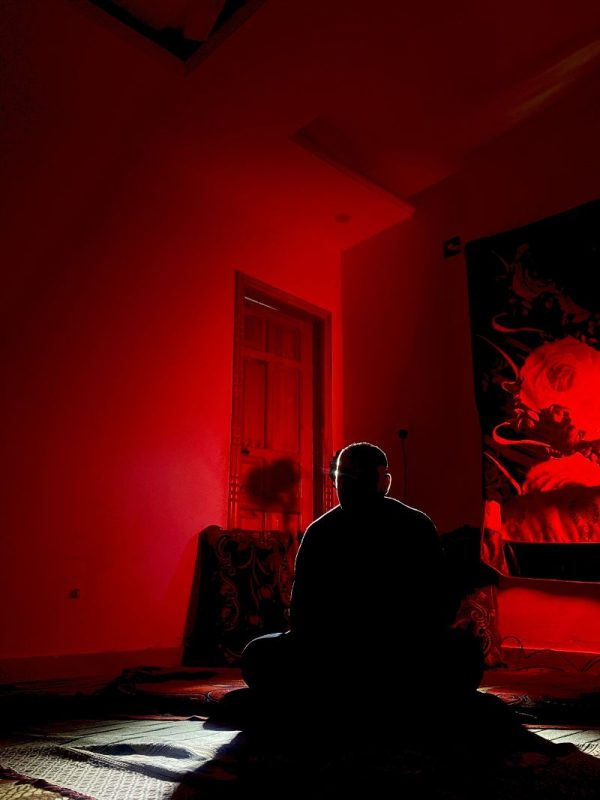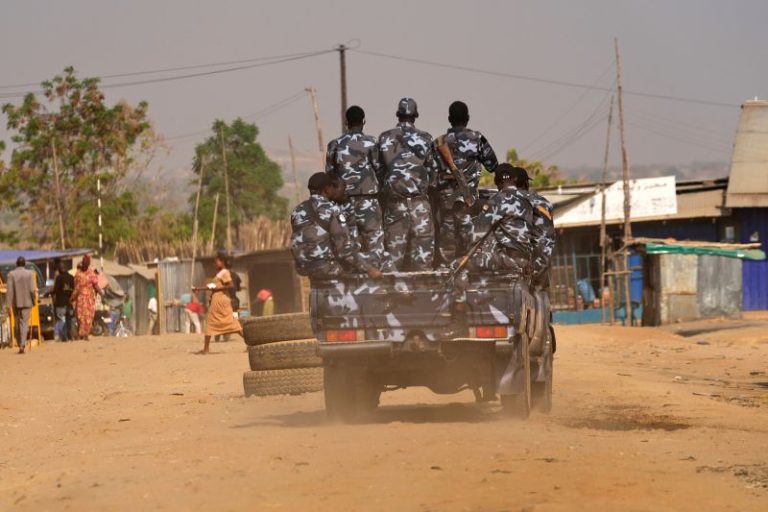The first time he flew his cargo plane through the clouds over his hometown of Kabul, Tauheed Khan swelled with pride.
During the US-led, 20-year war against the Taliban, Afghan Air Force pilots played a key role alongside American counterparts, some carrying out strikes that inflicted heavy casualties on the hardline Islamists.
That coalition ended in August 2021, when foreign troops withdrew and Kabul fell to the Taliban.
Khan now finds himself in neighboring Pakistan with his young family, fearing that they could be killed if they return to an Afghanistan now under the grip of the very forces he fought against.
Worsening their plight, anti-migrant policies in both Washington and Islamabad mean time is running out to find a safe alternative, including a looming deadline at the end of this month.
The war, which began with the US invasion in 2001 following the September 11 attacks, devastated Afghanistan’s civilian population, which is still recovering.
The ousting of the Taliban by the US-led coalition led to profound changes, including a return of democracy and significant improvements for Afghanistan’s women. But war and instability raged across swathes of the nation, especially in rural areas.
Tens of thousands were killed. Civilian losses escalated to 5,183 dead in the first six months of 2021, as the US began to pull out from Afghanistan and depend further on the Afghan military. A five-year study published by the United Nations in 2021 showed that 785 children died from US and AAF airstrikes over that period.
As the US finally pulled out, the Afghan army and government collapsed, allowing Taliban fighters to sweep back into power. Afghans affiliated with the former government are “most at risk” from the new Taliban administration, according to a report published by Human Rights Watch.
HRW and the United Nations have documented “extrajudicial killings, enforced disappearances, arbitrary arrests and detention, and torture and other ill-treatment” of Afghans who were in the security forces.
‘Pilots risk everything’
Khan’s friend, 37-year-old Khapalwaka is equally terrified. A trained aviation engineer, he worked as part of the AAF’s intelligence, surveillance, and reconnaissance program. His job involved clearing out civilian areas before they were targeted by US drone strikes.
He said he was assigned the task by his superiors, something he had often protested. “I soon became a target of the local Taliban faction,” said Khapalwaka, who had to move house every “three to four months” for safety reasons, even before Kabul fell.
Now selling wood by the roadside to feed his family, Khapalwaka – who, like Khan, was speaking under a pseudonym – said he’s concerned the Taliban could reach him in Pakistan too. “I know that they have contacts here, that they could target me here if they wanted… I just want to get out of here, so my daughters have a chance to be educated.”
The Afghan Taliban denied that former pilots were at risk if they returned.
The US embassy in Islamabad did not respond to a request to comment.
Left in limbo
Khan sat in a small room of his tiny apartment in a non-descript Islamabad building. Bedspreads shrouded windows as makeshift curtains, but slivers of sunlight poked through, making harsh blotches on the faces of his small children, who slept tucked together in frayed blankets on the floor, oblivious to the sound around them.
The youngest child was awake and constantly jumping on Khan’s lap as he spoke of the life he left behind.
In the chaos that ensued after the US withdrawal, Khan got to Pakistan in March 2022. He arrived legally and on foot, following the advice of a US pilot who had been one of his trainers.
Since then, Khan said, there has been “silence.”
In the past two months, White House policy has moved in a less predictable, more anti-migrant direction under President Donald Trump, throwing into doubt the prospects for Afghans such as Khan.
Tens of thousands of Afghans have already been caught in limbo due to other Trump administration executive orders suspending the US refugee admissions program and the suspension of foreign aid funding for flights of Afghan Special Immigrant Visa (SIV) holders. According to #AfghanEvac, at least 2,000 Afghans who had previously been approved to resettle in the US are currently in limbo.
March 31 deadline for Afghans in Pakistan
And the days of Pakistan offering at least relative safety may be numbered.
Home to one of the world’s largest refugee populations – most of them from Afghanistan – Pakistan has not always welcomed the foreigners, subjecting them to hostile living conditions and threatening deportation over the years.
According to the UN refugee agency, more than 3 million Afghan refugees, including registered refugees and more than 800,000 undocumented people, are living in Pakistan.
Islamabad has been cracking down on Afghan refugees since October 2023. It had shown leniency towards Afghans awaiting settlement elsewhere, but that changed after an announcement this February that it would repatriate “Afghan nationals bound for 3rd country resettlement,” by March 31.
That deadline will arrive on the Muslim festival of Eid al-Fitr, which ends the holy month of Ramadan. It is a time of celebration, feasting and gift-giving, but for Jawad Ahmed, a former Black Hawk helicopter pilot with the AAF, it feels like “all days are melting into one”.
“I was known in my hometown as someone who worked with the US military and I was a military man myself,” said Ahmed, whose name has also been changed at his request to protect his identity.
He arrived in Pakistan legally and was in limbo for two years. He said he interviewed with US immigration officers in May of 2024 and had his medical interview on January 10 at the US embassy. Since then, like many others including Khan, Ahmad has heard nothing from any US embassy official.
Ahmed spoke of seeing Pakistani police “whisk away” his Afghan neighbors, with an increase in raids over the last two months. His children are “overwhelmed with fear and terror.”
‘Death, difficulties and horrors’
But returning to Afghanistan could be even worse, according to Ahmed. “Only death, difficulties and horrors await us there” he said.
Ahmed’s family in Afghanistan have adopted new names and identities for their safety, eking out a life in a new province.
“Nobody knows about me where they are, nobody knows that they had a son, that they had a brother, in their new world it’s as if I never existed.”
He repeatedly asks for his message to be shared with President Trump and the US government.
“You trained us, we were there for you in a difficult time, we stood shoulder to shoulder with you,” said Ahmed. “We don’t have options in Pakistan, what can we do, please for the love of God get us out of here. We don’t have a life here; we are choking with fear.”
A serving US air force pilot, who asked to remain anonymous, has been assisting Afghan pilots they served alongside.
While serving soldiers have had some success helping families escape to the US, they still “fear for” their Afghan counterparts stuck in Pakistan and other countries and have “anxiety about their current situation and their future,” the pilot said.
Abandoning former partners, according to Vandiver of #AfghanEvac, sends a “chilling message to future US allies – whether in Ukraine, Taiwan, or elsewhere – that partnering with the US is a death sentence once the war ends.”
“China, Iran, North Korea, and Russia are going to eat our lunch because of this.”
A spokesperson for the US embassy said it remains in close communication with Pakistan on the status of Afghan nationals seeking resettlement in America.
As Eid approaches, Tauheed Khan and his friendship group of 27 Afghan pilots and engineers stuck in Islamabad, dream of eating meat to end their fast, of access to education for their children, of new clothes, a better home to live in with proper beds and of a way out.
“We are scared we will be dragged out,” says Khan. “We are under too much pressure, we don’t know what’s going to happen.”










